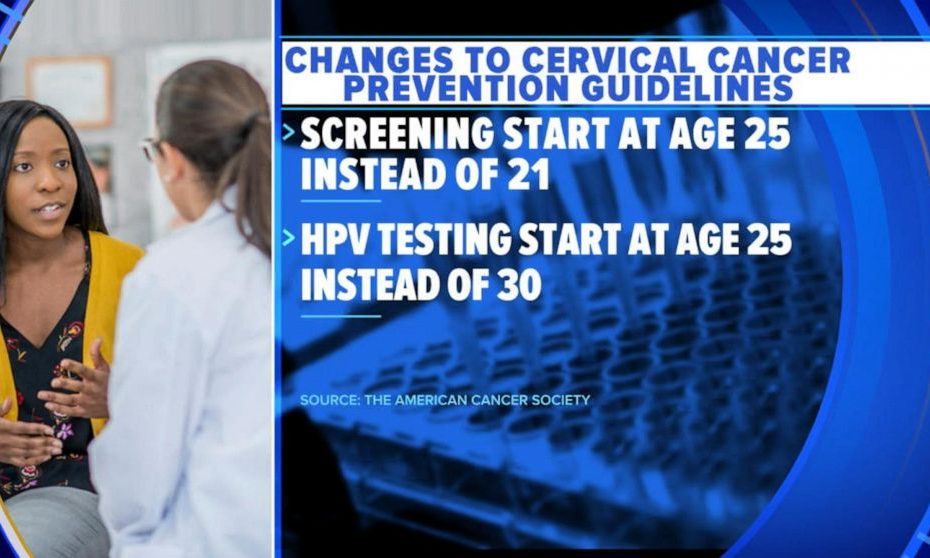“…If we don’t act, death from cervical cancer would rise by almost 50% by 2040 were the words of Dr. Tedros Adhanom Ghebreyesus, WHO Director-General in 2018.
Cervical cancer is a preventable disease that is also totally curable when caught early. Yet in the female population, cervical cancer is the second most prevalent cancer in Nigeria and it also ranks fourth place globally.
What is Cervical Cancer?
Cervical cancer is the type of cancer that affects an area of the female reproductive system called the cervix. The cervix is located at the entrance to the uterus(womb) just above the vagina. Hence, this cancer type is also known as cancer of the cervix, cervix uteri.
To fully grasp how this works, let’s define cancer.
Cancer is an occurrence in the body where group(s) of mutated cells refuse to die. Healthy body cells grow, multiply, and die after a while. The already defected cells, divide(grow) out of control and with time, form a mass usually referred to as a tumor. In a case of cervical cancer, this disease plays out in the cervix.
What causes Cervical Cancer?
All the precise causes of Cervical Cancer image yet to be known as findings are still ongoing. One thing that has been ascertained however is that HPV has a primary role in the development of this disease. Human Papilloma Virus (HPV) is a popular virus transferred from one partner to the other during sex. There are different strains of the HPV but only about one-tenth can cause cervical cancer. Common examples are HPV-16 and HPV-18.
HPV is a common virus but not all carriers come down with cervical cancer. We can infer therefore that there must be other factors that increase the chances of cervical cancer. These others are called ‘risk factors’ i.e. things that make cervical cancer a threat to you.
Risk Factors of Cervical Cancer.
- Kicking off sexual activity at an early age.
- Having multiple sexual partners
- Using birth control pills
- Weak immune system. For example, a person who already has HIV/AIDS
- Underlying STDs
What are the Types of Cervical Cancer?
It’s important to know the types because they are considered when deciding the treatment approach.
- Squamous Cell Carcinoma: This is the common type. For this one, the squamous cells of the cervix are affected. Squamous cells are thin and flat, lining the outer cervix.
- Adenocarcinoma: In this case, the cancer starts off at the cells lining the cervical canal. The cells are glandular and column-shaped.
Stages of Cervical Cancer.
- Precancerous stage: unusual changes to cells on the surface. The cells are called precancerous cells. The time it takes for them to become cancerous varies from person to person. It could be in a short or long while.
- The main disruption: Cancer invades the cervix and the nearest body parts.
- Invasive stage: The cancer spreads farther at this stage. It is at this stage the word ‘metastasize’ is used. It means to spread or grow by. Cervical cancer can metastasize to distant organs like the lungs etc.
Why we can point out all of these stages is because, with cervical cancer (and every other cancer type), regular biopsy is expedient.
Are there Outlining Symptoms?
Yes.
Yes, there are. It’s really a good thing. We get to know what to look out for. The symptoms are:
- Pain during sex
- Odd vaginal discharges
- Unusual bleeding e.g. in between menstrual periods, after menopause, after sex, or after a pelvic examination.
We’ve mentioned the basic ones but there are more like fatigue, pelvic pain, etc. that come with the spread of the cancer.
Diagnosis and Treatment of Cervical Cancer
There has been a great advance in Cervical Cancer screening in that the Papanicolau test commonly known as Pap smear has been adopted. Pap smear is a test that should come with a regular pelvic exam. In this test, cells from the surface of the cervix are obtained and viewed under a microscope to see if there is any variation.
Other methods are colonoscopy, Loop Electrosurgical Excision Procedure, and Conisation. However, the pap smear is the most common, the easiest and the most convenient.
Surgery and Radiotherapy are the frequently used methods in getting rid of cancer of the cervix. On some occasions, chemotherapy, or immunotherapy are performed instead. It all depends on the severity, patient’s response, and accessibility.
In addition, don’t belittle the role of support systems. Be there for those fighting this battle and you should also be open to care. Emotional support goes a really long way.
Prevention: Way Forward
Prevention, they say, is better than cure. Other than prevention, There’s actually no way to reduce the cervical cancer mortality rate in Africa and abroad.
Last month, the World Health Assembly adopted a global strategy to eliminate cervical cancer as a public health problem. Of the three pillars, there was ‘prevention through vaccination‘ It was agreed that these 3 have to be altogether implemented for the result to be achieved. Above all, HPV vaccines guarantees long term security from cervical cancer at little cost.
On a final note,
A study carried out in Enugu, Nigeria showed that awareness and accessibility of HPV vaccine which is a contributing factor in the fight of cervical cancer is very low. Let’s make it our duty to educate our small groups of families and friends in our little ways. When we are all equipped with the right information, a great deal of the work is done. Our dream of eradication can then, be a reality.
FURTHER READING:
THE STORY OF SHARON by Dr. Odusanya
IMAGE CREDIT: ABC NEWS

A phenomenal lady whose skills and style do the talking. Her unending desire for better healthcare from persons, through to the public has always been her drive. Over the years, she has volunteered with different NGOs that try to promote a healthy lifestyle.
She hopes to one day create an avenue for people to get the guidance needed for nutrition essential for life, amongst other things. She believes knowledge paves ways. And so, makes it a responsibility to keep learning and impacting others.
Deborah Solomon is a believer and currently a medical student at the Obafemi Awolowo University, Nigeria. She enjoys writing, traveling, music, and cooking.

